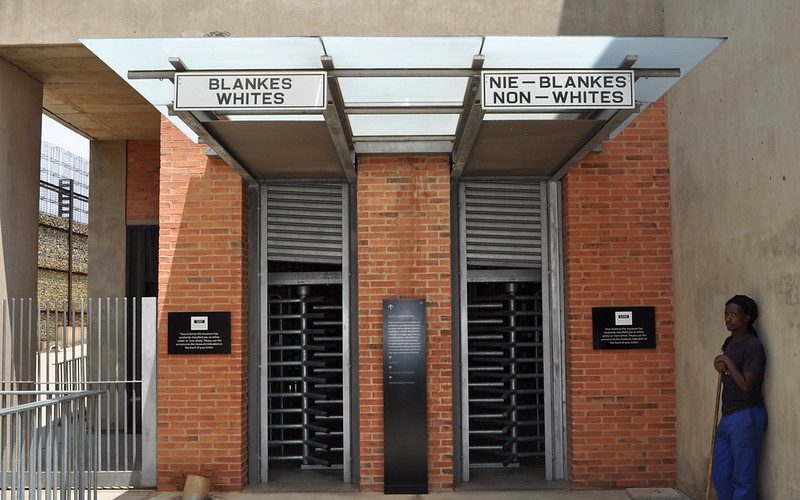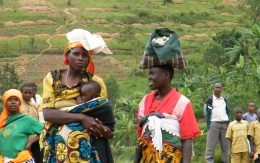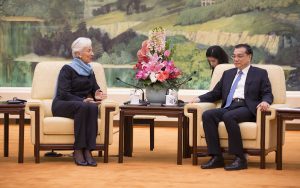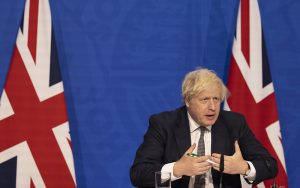This in-depth study was first written in the course of a university class on socio-linguistics. It analyses the South African Apartheid’s historical and socio-linguistic dimension.
The segregation operated by Apartheid followed the path of a dictatorial system, while language control allowed the segregationist regime to exclude people of colour from the country political and economic life.
This is well-reported within the framework of the educational policies and the deliberately racist media propaganda operated at the time.
Historical Context and English-Afrikaans Relations
Apartheid (“separation” in Afrikaans) was a system of racial segregation established in 1948 by the predominantly white Afrikaner government of South Africa, which remained in force until 1994.
An important feature of the political class was the absolute convergence of party members towards racist-segregationist ideologies against the Africans, a strong anti-British sentiment and, finally, a heated nationalism. To understand the origin of these extreme ideologies, it is necessary to briefly review the various historical stages that led South Africa and especially Afrikaners (former Boer settlers) to establish Apartheid.
The regime operated on two parallel but different levels. On one hand, there was an African racial and linguistic segregation, which will be discussed at length. On the other hand, there was a process of “downgrading” and marginalizing the English language, spoken by the former British colonists, due to rivalry and historical reasons. From this perspective, the relationship between English and Afrikaans was very unique and interesting.
“English was first brought to South Africa with the first occupation of the Cape by Britain in 1795 to 1802. After the Peace of Amiens of 1802, the British handed back the Cape to the Dutch from whom it had been taken in 1795. In 1806, during the Napoleonic Wars, Great Britain annexed the Cape for the second time.” (Mgwebi,2010)
Thanks to the British dominance, the English language had a “boost” in all societal sectors. It even supplanted Afrikaans in several territories where its presence was historically well-established. By doing so, English soon became the language of dominance, it was so penetrating that even the Dutch Reformed Church (DRC) chose English as its official language.
“The language uniformity which was established between 1778-1870 by the Dutch settlers in the Cape, was broken down. […] The Anglicization of the Cape was completed in 1853 when English became the only language of the parliament and the only language of the courts of law”. (Mgwebi,2010)
Many Boers could not accept this condition of subordination, so they moved to Natal and Transvaal, regions already populated by other Dutch settlers. However, in 1843, “Great Britain annexed the colony of Natal. Five years after the annexation, two English schools in Natal were opened in Pietermaritzburg and Durban.” (Mgwebi,2010)
In 1863, the regional governor established English as the official school language. Everyone from kindergarten to college was required to use it. However, the situation in Transvaal was different. There was in fact substantial equity between the languages of education. English and Dutch each had the same number of hours, but in 1886 “after the so-called discovery of gold, a huge number of British immigrants came to the Transvaal.” (Mgwebi,2010)
The exponential growth of British miners and immigrants settled in the Transvaal made history repeat itself. English once again became the dominant language, but since Transvaal was home to the more conservative Boers, the region soon became a “hot-zone.” Heated political clashes followed, mainly over which language of education to use. Paul Krueger, then governor, became known for unleashing the Second Anglo-Boer War, which ended with a peace treaty establishing their regional independence under the control of the British protectorate.
1910 was a turning point for South Africa, at least for the European settlers, because for the first time, the British and the Boers established a union through the signing of the Union Act. King Edward VII and the Parliament established South Africa as a Dominion, headed by a duly elected governor. In fact, this union in many ways only materialized in a few situations since the Boers resentment for the British never completely disappeared. In 1925, “Afrikaans was recognized by Parliament as one of the official languages of the country equal to English and Dutch. […] According to Heinz Kloss, during the period 1900-1966 a total of 18.699 books were published in this new literary language.” (Mgwebi,2010)
The great production of literary works in Afrikaans was implemented to obscure the English language, and soon this choice became a real strength display. During Apartheid, an even more important development took place: the English language role changed from a language of dominance to a language of resistance, as it was used by the black majority and Africans elites. After 1948, Afrikaner Prime Ministers always tried to reduce the influence of the English language. Meanwhile, in schools, despite bilingualism, teachers, being almost predominantly Afrikaners, did not have a good command of English.
In this intricate situation, the Africans Bantu languages had almost no political relevance. Officially, they were not recognized as official languages, although they were widespread.
In his autobiography, Nelson Mandela writes: “At ANC committee meetings, most of us spoke English and those who did not speak it well, tried to do so. The choice of the English language had also practical reasons, in fact, each of us spoke our mother tongue and you understand well that it would not have been practical to translate everything in each language. ” (Mandela, 1995)
Educational policies
“The South African Constitution was drawn up […] following the dismantling of the Apartheid regime in 1994. […] Before the legislation concentrated power and control of land and other economic resources in the hands of the 15% of the population who were ethnically white. The large Black majority, the Indian and mixed-race sectors were actively discriminated. They were not allowed to vote or to have a say in changes to land law and local educational policies. […] the law that dictated that Afrikaans would be the medium of instruction in Black schools became one of the most hated aspects of the Apartheid and served as a lightning rod for acts of resistance. […] Nowadays, the official languages of the Republic are also Sepedi, Sesotho, Setswana, siSwati, Tshivenda, Xitsonga, Afrikaans, English, isiNdebele, and isiZulu.” (Meyerhoff,2010)
This was a radical change compared to the Apartheid era, when the only officially recognized languages were English and Afrikaans. The striking fact, however, was the marginalization of Bantu languages in schools. The Bantu Education Act (1953) allowed the use of the mother tongue for black children in primary school, while from 11 to 14 years old there was the “handover” to the official languages, that is Afrikaans and English. At this point, African languages became secondary and were later taught as a subject of study. The use of the native language in school for the first few years was intended to foster the child’s inclusion and integration into his or her community.
“Mother tongue schooling in South Africa does appear to entail racially and ethnically segregated schooling. Further, resistance to the use of the vernacular languages seems to be growing among young Africans.” (Reagan,1987)
This measure encouraged school dropouts and was certainly applied for a racist reason: “Dr Verwoerd had this to say: The Bantu pupil must obtain knowledge, skills and attitudes in the school which will be useful and advantageous to him and at the same time beneficial to his community. The school must equip him to meet the demands, which the economic life of South Africa will impose upon him. […] He must learn not to feel above his community, with consequent desire to become integrated into the life of the European community. (Mgwebi,2010)
The Bantu Education Act of 1954 was only the first in a long series of amendments designed to restrict black students’ freedoms and a huge protest ensued when the Education Act was extended to universities in 1959. This reform increased the level of racial segregation by excluding Africans from White universities. Tensions between black students and the government culminated and “on June 16th, 1976, an uprising that began in Soweto, spread countrywide profoundly changed the socio-political landscape in South Africa. The events that triggered the uprising can be traced back to Apartheid government policies resulted in the introduction of the Bantu Education Act in 1953. The rise of the Black Consciousness Movement (BCM) and of South African Students Organisation (SASO) raised the political consciousness of many students while others joined the wave of anti-Apartheid sentiment within the student community”.
The 1976 student demonstration turned into a political confrontation, as the use of violence increased international interest in Apartheid. Following these events, the liberation movements had greater support and regained strength. The hatred of the young black students towards Afrikaans was enormous, as it represented the oppressor’s language. As mentioned earlier, black students preferred to speak English rather than Afrikaans. This is clearly due to historical and political reasons, “unfortunately Afrikaans has got certain connotations historically that provokes a rejection from the “Blacks”, and these are political connotations”. (Mgwebi,2010)
The new constitution introduced in 1996 is very progressive but little seems to have changed. The Constitution states that all 11 languages spoken in South Africa are official languages and therefore enjoy the same rights.
Let us remember the motto: “Unity in Diversity”. Now you must wonder, what is not working?
Section 29 of the Constitution states: “Everyone has the right to receive education in the official language or languages of their choice in public educational institutions where that education is reasonably practicable. To ensure the effective access to, and implementation of this right, the state must consider all reasonable educational alternatives including single medium institutions, considering (a) equity (b) practicability and (c) the need to redress the results of past racially discriminatory laws and practices”. (Meyerhoff,2010)
The School Act, an amendment passed by the new government, promotes multilingualism, integration and the breaking down of racism. It established that:
- The provinces must formulate their own language-in-education policies (subjected to national policy)
- The governing body of a (public) school determines the school’s language policy (subject to any relevant provincial acts)
- The use of language policy for racial discrimination is prohibited.
- The use of a language proficiency test for the purpose of admission to the school is also prohibited. (Webb,1999)
The lack of funds, materials, and personnel is a marginal part of the problem as it is surmountable but the real challenge lays at the socio-economic and cultural level. English is more prestigious than the Bantu languages and is the vehicular language in almost every field, making it the primary language worldwide.
Considering the Linguistic Vitality theory, by keeping an objective and external look, one can notice several contradictions. During Apartheid, Bantu languages were the most widely spoken because they could count on many native speakers, despite the forced housing fragmentation and confinement of the various ethnic groups, sometimes even lumped together. The amendment of the Land Act in this sense was the practical implementation of the “Divide and Rule” principle.
The use of Bantu languages was limited to the familiar and community sphere, as they had a minor role on an economic level. In contrast, English as a high status “White” minority language, enjoyed and enjoys strong institutional support, achieving rapid diffusion both at school level and in the daily lives of black South Africans.
Currently, the tendency to use colonial languages in African states is increasing due to economic reasons and social prestige. Usually, the local language is complemented by the European language starting from the third or fourth year of primary school. However, local governments believe that the premature use of European languages can lead to poor school results. In fact, using the local language has great advantages in terms of learning and understanding between pupil and teacher.
In South Africa, “Pans ALB1 has been mandated to elaborate terminology for the nine historically disadvantaged official languages (e.g., Tshivenda, Xitsonga…) which, though partially developed in possessing written forms, literary work, dictionaries, and terminology lists, require further development in modern terminology.” (Ferguson, Gibson, 2006)
Lastly, while the Constitution recognizes the validity of Bantu languages, it does not clarify which procedures and methods shall be used to implement the School Act concretely, but sets out the guiding points in a generic way.
Languages and Media
During Apartheid, all media was controlled by the White minority, from radio to newspapers. Media control has always been a fundamental prerogative of any regime, and in the South African case, the press and radio became instruments of control and exclusion of Bantu languages. This can be observed in how issues concerning violence were treated. They were seen by the press as a “repellent”, to keep public opinion distracted from more important and thorny topics. Violence is defined as a ubiquitous, faceless, meaningless, unpredictable, and incomprehensible behavioral act. (Seedat,1999)
This policy aimed at instilling terror in citizens minds. In reference to Seedat’s research, which analyzes 220 newspaper articles published during Apartheid and after, two trends are noted; during the regime, violence was a political fact, later as a criminal act. Some variables, such as the murder weapon, sex, motive, crime scene, age, and the identity of the victim and assailant, were often reported in a fragmentary manner. “Details about the victims categorized along the lines of age and race are not provided. Where demographic information is provided it tends to be vague, inconsistent, and sketchy”. (Seedat, 1999)
The attacker was also not identified but was often depicted as African descendant. This categorization was intentional, and this made Africans perceived as dangerous criminals.
“Newspapers are only a poor shadow of reality; their information is important…not because it reveals the truth but because it discloses the biases and perceptions of both those who produce the paper and those who read it”. (Mandela, 1995)
After 1995, the situation did not change much. Apartheid was over, but the editorial offices remained in the hands of the same people and, often, the crimes’ real dimensions were amplified to make it seem an insurmountable problem.
The situation was similar for the Radio, in a scenario without television and with a large part of the population illiterate, it soon became the most widely used source of information. In the 1950s, Radio Bantu was founded, which was designed to sharpen divisions, and accentuate tribalism. “Another objective was to spread the Word of God, along the Christian lines and to destroy African culture, which they regarded as a threat to Christianity”. (Mgwebi,2010)
Today, Radio Bantu is one of the many radio stations in South Africa converted to respect and democracy.
Conclusion
Linguistic diversity must be safeguarded, especially in countries like South Africa where Bantu languages have been segregated. For instance, respect and fairness must be the guiding principles of this new course.
Obviously, the Constitution brought big changes as all major languages have now become official. But, despite an apparent socio-linguistic parity, little has changed. In fact, the major national institutions, even the linguistic ones, have adopted English as their working language, such as “The Landbank, Post Office, Pan South African Language Board (PANSALB), South African Airways, Ministery of Defence and in Parliament”. (Webb,1999)
This phenomenon is not accidental, as mentioned above, English is a language of prestige that also possess economic value, unlike many Bantu languages.
“Whereas the country’s institutional documents (the Constitution and the national policies being developed) proclaim linguistic pluralism to be the national objective, the country seems to be regressing to its pre-Apartheid situation of monolingual practice – This process will presumably lead to a gradual irreversible loss of language. However, there are still many native Bantu speakers and although the school does not have all the means to achieve multilingualism, it certainly has great potential for linguistic growth and preservation. It is only a matter of taking the right measures because the political foundations are now stable. Linguistic recognition of the Bantu languages was, after all, a racial struggle but in the age of globalization there is now a tendency to use everywhere a common language which facilitates commercial, social, and political exchanges. An “English only situation”. (Webb,1999)
Considering the bigger picture, the fact that Arabic, Chinese and English are nowadays the most “valuable” commercial languages might eventually lead to disappearance of world’s dialects and localisms.
Sources
Mandela, N. (1995). Il Lungo Cammino verso la Libertà (The Long Walk to Freedom) (2011 ed.). Feltrinelli p. 208
Meyerhoff, M. (2010). INTRODUCING SOCIOLINGUISTICS (Second ed.). Routledge p 110, & F. (n.d.). THE ROUTLEDGE SOCIOLINGUISTICS READER, “Language Education Policy and the medium of instruction issue in Post-Colonial Africa”. P 150
Mgwebi (2011). ASPECTS OF LANGUAGE IN SOUTH AFRICA DURING THE APARTHEID ERA. Historia Actual Online, 65-91.
Reagan, T. (1987). 3. The Politics of Linguistic Apartheid: Language Policies in Black Education in South Africa. The Journal of Negro Education, 56(3), 299-312.
Seedat, M. (1999). The Construction of Violence in South African Newspapers: Implications for Prevention (U., Ed.). JOURNAL OF PEACE PSYCHOLOGY, 5(2), 117-135
The Soweto Uprising. (n.d.). Retrieved from http://www.sahistory.org.za/
Webb, V. (1999). Multilingualism in democratic South Africa: The overestimation of language policy (U., Ed.). Int. J. of Educational Development, 19, 351-366.









Be First to Comment